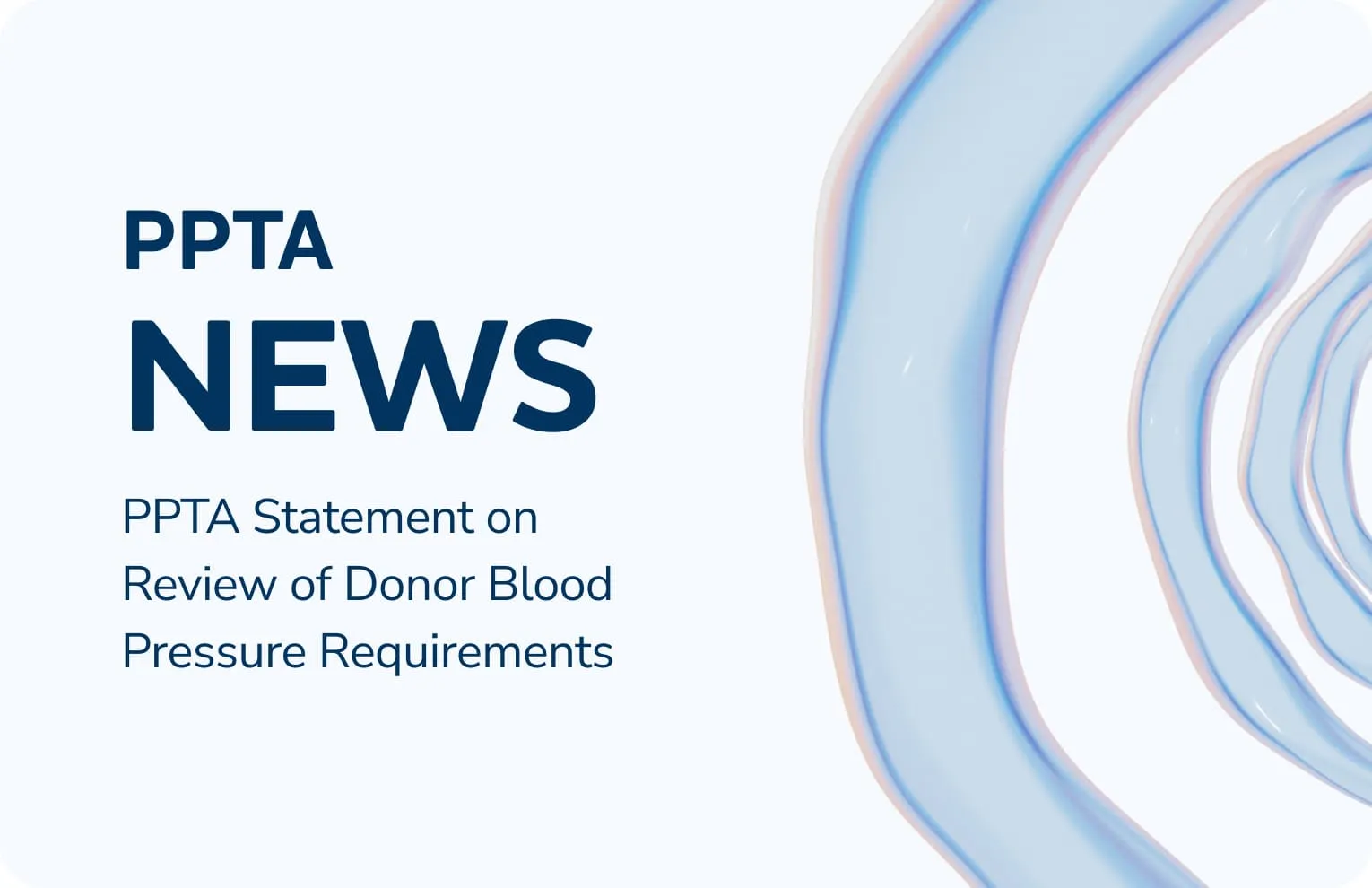October 4, 2021 (Brussels, Belgium) — The Plasma Protein Therapeutics Association (PPTA) is marking the 9th annual International Plasma Awareness Week (IPAW), October 4-8, by increasing awareness and understanding about the importance of plasma, particularly the urgent need to increase plasma donations in the European Union, while also recognizing and thanking plasma donors who save and improve the lives of patients who rely on plasma for their therapies. Considering the revision of the European blood and tissues and cells legislation, PPTA calls on policymakers and regulators throughout Europe to strengthen its legal framework to benefit plasma donations for plasma-derived medicines and encourage new approaches that increase the collection of plasma across the European Union.
Plasma — the straw-colored, liquid portion of blood — contains proteins necessary for carrying out critical functions in the human body, such as antibodies to fight diseases and clotting factors to regulate bleeding. If a person has insufficient levels of any one plasma protein, his/her body cannot carry out these vital functions, causing a variety of chronic and life-threatening medical conditions. Plasma donation requires commitment from the donor, as it can take more than one hour per donation, and it can be donated more often than whole blood. The foundation of safe plasma therapies is a regular healthy plasma donor population.
Plasma collections declined nearly 20% last year compared to 2019 due to the COVID-19 pandemic and appear to still be down this year. Considering the complex manufacturing of plasma-derived therapies can take 7-12 months, any decline in plasma donations could impact patients’ ability to access their lifesaving therapies, ultimately jeopardizing their health.
“300,000 patients across Europe rely on plasma-derived medicinal products (PDMPs), which can only be made out of human plasma” said Maarten Van Baelen, Executive Director PPTA Europe. “However, the EU still relies for 30% of its plasma on the United States. It is up to policymakers to remove barriers that limit opportunities for committed and healthy adults to donate their plasma and to address Europe’s reliance on plasma from third countries. We should all work together towards a broader European plasma donation ecosystem.”
Learn more about the importance of plasma and plasma-derived medicines by visiting and supporting www.ItsInUsAllToSaveALife.org.
Media Contact:
Mathew Gulick
Director, Global Communications
+1.443.995.6152
mgulick@pptaglobal.org
Created on October 04 2021.





